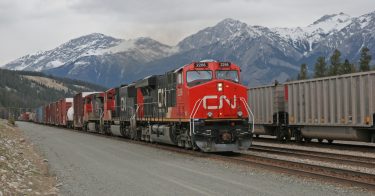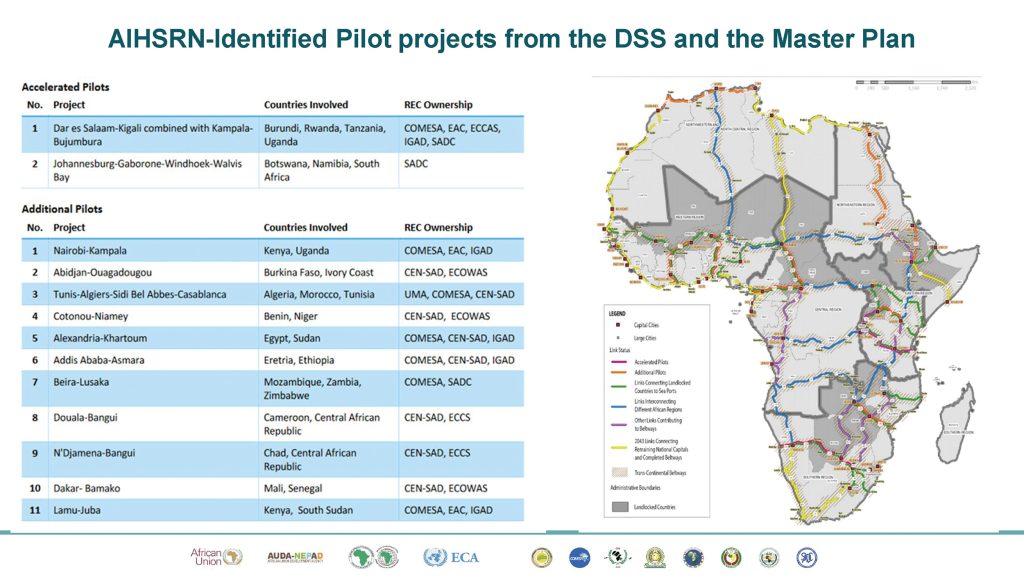Work commissioned by the Mayors of the West Midlands and Greater Manchester to improve connections between the two city-regions has provisionally concluded that a new rail line between Handsacre and Manchester Airport is the preferred option.
The private sector group – chaired by infrastructure expert Sir David Higgins – had been looking at three potential options to help tackle the congestion on the West Coast Main Line and improve connectivity between Birmingham and Manchester. These options were:
Undertake significant engineering upgrades to the West Coast Main Line
Build bypasses at the pinch points on the West Coast Main Line
Build a new railway line between Handsacre and Manchester Airport
Doing nothing was dismissed by both Mayors – Andy Street and Andy Burnham – at the beginning of the work due to the pressure on the already congested routes in and out of the two regions – the West Coast Mainline and the M6 – which will continue to face significant passenger and freight capacity challenges through the 2030s and beyond.
The group, convened by the Mayors, is led by global engineering firm Arup with input from over 60 partners from six other firms – Arcadis, Addleshaw Goddard, EY, Dragados, Mace and Skanska. They have been exploring the different roles the private sector could play in the delivery and financing of the three different connectivity options, with the aim of helping to identify a new way of delivering infrastructure projects in the UK – striking the right balance between the public and private sector.
Although more detailed work is still to be done ahead of final conclusions this summer, the group has provisionally concluded that a new line – running approximately 70 miles between HS2 at Handsacre and Northern Powerhouse Rail at High Legh – is likely to offer the best combination of costs and benefits.
Developing and delivering a railway line of this kind takes time, but the work undertaken under HS2 could be utilised to offer significant efficiencies in delivery timescales and reducing risk – key ingredients for attracting private sector involvement.
Although using the same route, it is anticipated the line would follow different specifications to HS2 – delivering a more affordable solution that still delivers significant benefit, through new engineering solutions and changes to design speed. This however is subject to further work ahead of this summer’s final conclusions, which will also set out options for an integrated solution at Crewe.
Andy Street, the Mayor of the West Midlands, said: “When the Prime Minister made his decision to cancel HS2 North, he said he would welcome proposals from me on how to better connect the Midlands and the North – and that’s what this work is doing.
“Although only provisional findings, it is clear that a new line between Handsacre and Manchester airport is the best option for improving connectivity, and the most attractive option for significant private sector involvement.
“Not only do we have to solve the congestion on the West Coast Main Line and the M6, but we also have to rethink how we tackle major infrastructure projects in this country. That’s exactly what this work is looking at, and I hope the final conclusions will help shape the future of our country.
“I think it’s really powerful that Andy Burnham and I have been able to come together to produce this work cross-party, and want to my place on record my thanks to Sir David, Arup, and all the private sector firms who have inputted.”
Andy Burnham, the Mayor of Greater Manchester, said: “We were disappointed by the decision to cancel the Northern leg of HS2 and the way it was done, but right now we are focused on delivering an alternative.
“We are very grateful to Andy Street, Sir David Higgins and the private sector-led working group for taking on this task, and helping to develop robust proposals to capture the benefits that could be lost if a new plan is not put forward.
“It’s becoming drastically clear that the existing West Coast Mainline and the congested M6 will not be sufficient to cope with increasing passenger and freight volumes. Without an alternative, they could very soon become a barrier to growth in the North and the West Midlands.
“We appreciate the fact that government has left funding on the table for Northern Powerhouse Rail. That is the right thing to do, because any alternative cannot meet its potential without improving East-West capacity as well. If they are serious about economic growth outside of London, they now need to pause the sale of land previously earmarked for HS2, and work with Greater Manchester and the West Midlands on a serious plan for the future.”
Not only would this approach address the ‘missing link’ between the West Midlands and Greater Manchester, but it could also accelerate the positive benefits of Northern Powerhouse Rail, Midlands Rail Hub, and HS2 – all at lower cost and with less delivery risk than alternative plans.
This new infrastructure could be delivered in a different way, where costs are covered through a combination of government funding and private finance, with repayment through access or user charges on the new line. This approach seeks to maximise the role of the private sector in bringing in new ideas for efficiencies, whole-life cost management, rigorous third-party due diligence and a more optimal transfer of risk to the private sector earlier on in the design process. This successful model has worked for the new section of TGV line in France between Bordeaux and Tours and the repayment methods could be similar to the existing concession agreement for HS1 between London and the Channel Tunnel.
The provisional findings have been shared with the Department for Transport.



